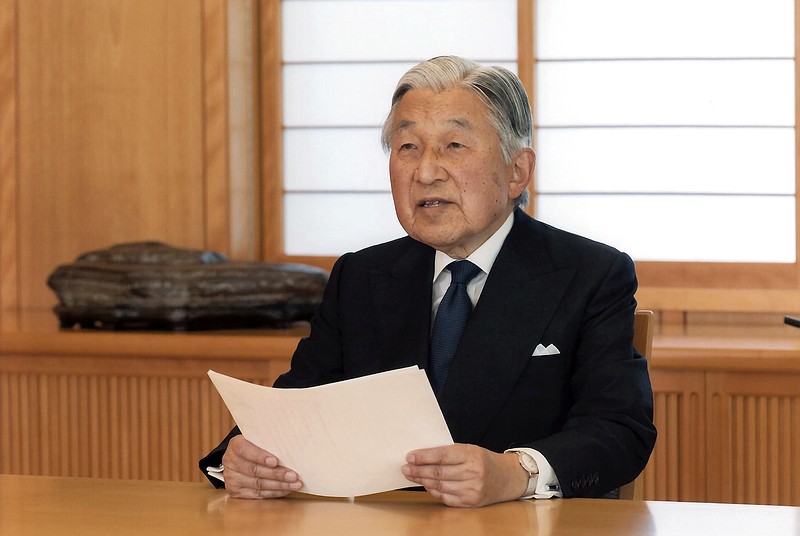TOKYO (AP) - It's not often that Japan's emperor delivers a special address to his country's 126 million people, as Emperor Akihito did on Monday.
He does speak twice annually, at a New Year's speech to crowds outside the Imperial Palace and at an official commemoration of the end of World War II on Aug. 15.
But rarely since the advent of radio and television have Japanese emperors broadcast directly to the people. Three of the most notable times:
Aug. 15, 1945
The 4 1/2-minute speech by Emperor Hirohito announcing Japan's surrender in World War II has reverberated throughout the country's modern history. Broadcast on NHK radio, it was written in arcane language to make Hirohito sound authoritative and convincing, but which also made it difficult for many to understand. Still, when listeners heard him refer to his resolve for peace by "enduring the unendurable and suffering what is insufferable," they understood the fighting was over. The audio recording was made secretly close to midnight, because of concern about elements opposed to ending the war. A group of young army officers did in fact storm the palace in an attempt to steal the recordings, but failed.
___
March 16, 2011
Emperor Akihito, who succeeded Hirohito in 1989, appeared on TV in a pre-recorded video five days after a catastrophic tsunami killed more than 18,000 people in northeastern Japan. "It is my heartfelt hope that the people will continue to work hand in hand, treating each other with compassion, in order to overcome these trying times," he said. "I believe it extremely important for us all to share with the victims as much as possible, in whatever way we can, their hardship in the coming days." The historic broadcast underscored the gravity of the situation facing the country.
___
Aug. 8, 2016
Akihito again spoke in a pre-recorded video on TV to address media reports that he was considering abdication. Legally, he couldn't say whether he wanted to abdicate, as that would require a change in Japanese law, and the constitution forbids his involvement in politics. He strongly implied so, though, by saying he is worried that age may make it difficult for him to carry out his duties, and noting that when past emperors became seriously ill, it brought society to a standstill and imposed a heavy strain on others in the Imperial family. "It occurs to me from time to time to wonder whether it is possible to prevent such a situation," he said.
